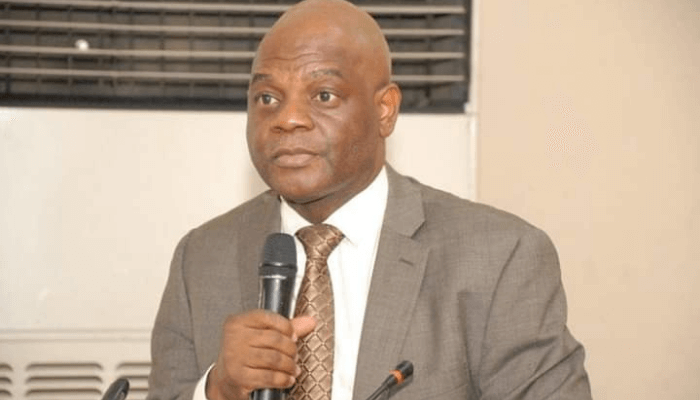The Tertiary Education Trust Fund (TETFund) stands as a cornerstone of educational enhancement in Nigeria, devoted to equipping students with the resources necessary for their academic success.
With a mission focused on empowering learners, TETFund’s strategic investments are pivotal in cultivating a vibrant and supportive educational landscape.
Through various targeted initiatives, the Fund has actively works to tackle pressing challenges in the education sector.
Its commitment to improving the academic experience across Nigerian universities is reflected in the diverse array of programmes it has implemented, all aimed at fostering an environment where students can thrive.
At the core of TETFund’s efforts is a determination to promote academic excellence. The Fund offers scholarships, grants, and capacity-building programs designed to elevate both student and faculty contributions to Nigeria’s socio-economic development.
By investing in education, TETFund is playing a crucial role in shaping the future of the country.
Recently, TETFund organised a workshop titled “Emerging Areas of Students’ Needs in Beneficiary Institutions” in Abuja, emphasising its proactive approach to addressing evolving educational demands.
The event brought together educators and stakeholders to explore new strategies and solutions.
During the workshop, Executive Secretary Arc. Sonny Echono urged lecturers overseeing career centers at colleges of education to embrace modern technologies.
He highlighted the importance of equipping students with relevant skills to enhance their employability on a global scale. “Don’t make your students as analogue as we are; let them compete with their peers and stay at the forefront of their fields,” he advised.
Echono also announced the introduction of Career Services Centers, set to launch in the 2024 disbursement cycle. He articulated the necessity of these centers in facilitating student career development and improving employability, central objectives of tertiary education institutions.
“These centers will empower students to make informed career choices, mirroring successful models in advanced countries,” he stated.
The workshop aimed to brainstorm and identify specific areas for intervention that would benefit both educational institutions and students.
Echono explained that these career centers would provide vital information on job market trends, available opportunities, and required skills, creating valuable linkages between students and potential employers.
Additionally, these centers will assist students in self-assessment, helping them recognize their strengths and weaknesses while offering guidance tailored to their aspirations. This holistic support system is crucial for navigating the complexities of the job market.
Echono further disclosed that TETFund had received directives from the Federal Ministry of Education regarding support for teaching practice and new stipends for student teachers. These recommendations aim to align allowances with the needs of educators, enhancing the attractiveness of the teaching profession.
He noted that while TETFund has implemented a Duty Tour Allowance for supervisors based on civil service rates, there is a need to harmonize this with the National Salaries, Incomes, and Wages Commission’s recommendations to ensure equitable compensation for all educators involved in teaching practice.
The importance of collaboration in refining funding templates was emphasized, as differing methodologies between TETFund and the Commission necessitate a unified approach.
“We recognize the vital role of student teachers and the faculties of education in enhancing the profession,” Echono remarked, underscoring the necessity of adapting disbursement policies in consultation with relevant authorities.
Dr. Smart Olugbeko, President of the Colleges of Education Academic Staff Union (COEASU), spoke at the workshop, noting its focus on emerging student needs. He highlighted the growing concerns around graduate employability, emphasizing that education must not only impart knowledge but also prepare students for the workforce effectively.
“Employability is a significant issue that employers continuously raise,” Olugbeko pointed out. He stressed that it is critical to assess how well institutions prepare their students to enter the job market successfully.
Skills development among career center personnel was another key topic. Olugbeko argued that staff must be well-equipped to effectively guide students in their career paths.
“You can’t give what you don’t have,” he stated, calling for investment in training for career center staff to foster productive interactions between students and the industry.
Furthermore, Olugbeko urged TETFund to ensure uniform infrastructure across institutions. He warned that without proper facilities designated for career centers, the effectiveness of these initiatives could be compromised. “We risk establishing career centers that are not functional if infrastructure is inadequate,” he cautioned.
He also called for enhanced monitoring and evaluation of career centers to ensure that interventions lead to meaningful outcomes. “A strong monitoring function is crucial; without it, our efforts may fall short,” he emphasized.
Prof. Paulinus Okwelle, Executive Secretary of the National Commission for Colleges of Education, expressed gratitude for TETFund’s initiatives aimed at enhancing career centers in colleges. He remarked that the role of educators has evolved significantly, necessitating a comprehensive approach to prepare students for diverse career paths in education.
“The expectations of teachers today are greater than ever, as they must navigate a complex societal landscape,” Okwelle observed. He stressed the need for educators to adopt multi-faceted strategies to guide students effectively.
Okwelle also noted that colleges have been authorized to offer degree programs, broadening their scope beyond traditional teacher training. This move reflects a commitment to diversifying educational opportunities and enhancing the qualifications of future educators.
TETFund’s initiatives represent a significant investment in the future of education in Nigeria.
By addressing the pressing needs of students and aligning educational practices with industry standards, the Fund is laying the groundwork for a more skilled and competitive workforce.
The ongoing collaboration among stakeholders, including educators and policymakers, is essential to ensuring that these efforts translate into tangible benefits for students and society as a whole.
Through its strategic vision, TETFund is not only transforming academic experiences but also contributing to the socio-economic advancement of Nigeria.





